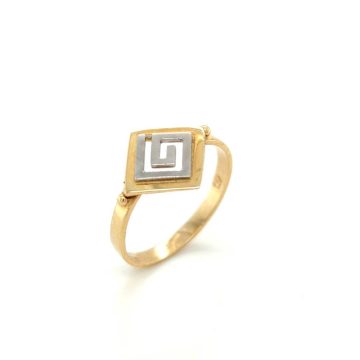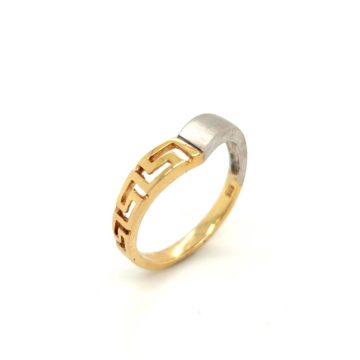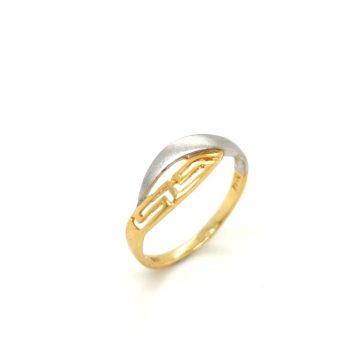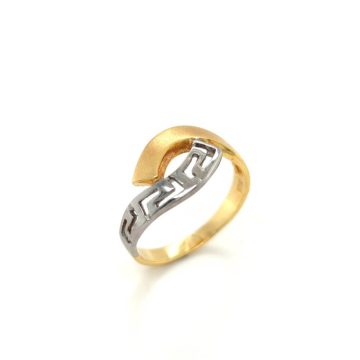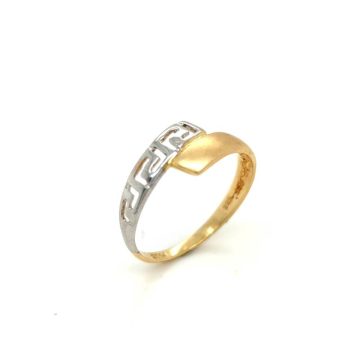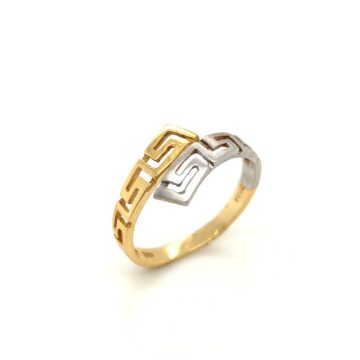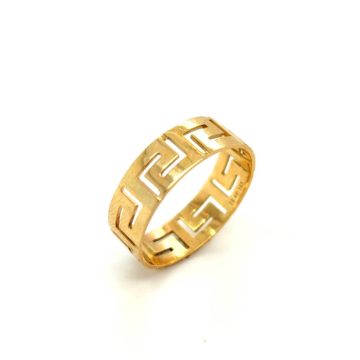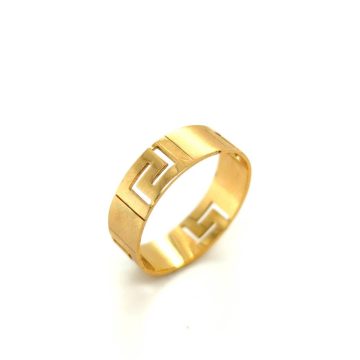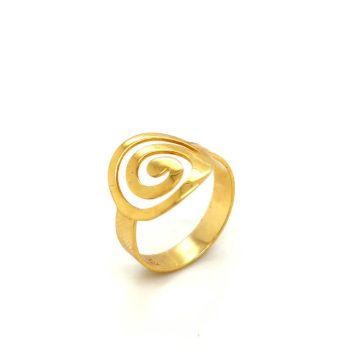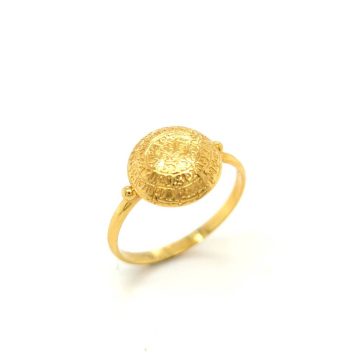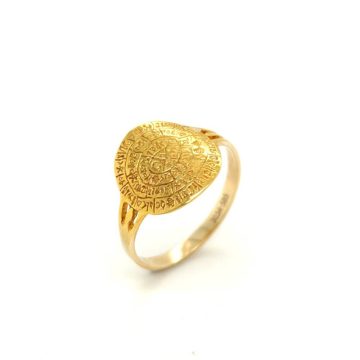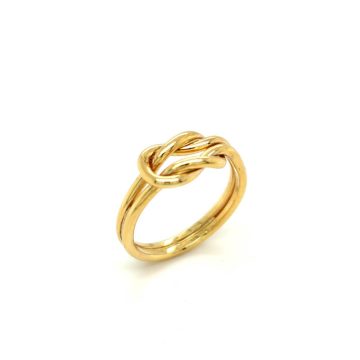Women’s ring, gold K14 (585°) meander two-tone
Women’s ring with meander symbol two-tone, with gold glossy and white matte surface. The ring is made of gold and whitegold K14 (585°). Meander is the most ancient Greek symbol of Victory and Unity, symbol of Infinity and Eternal Life. Inspired, according to some academics, by the numerous bends of the Meander river. Maendros is …
Women’s ring, gold K14 (585°) meander two-tone
Women’s ring with meander symbol two-tone, with gold glossy and white matte surface. The ring is made of gold and whitegold K14 (585°). Meander is the most ancient Greek symbol of Victory and Unity, symbol of Infinity and Eternal Life. Inspired, according to some academics, by the numerous bends of the Meander river. Maendros is …
Women’s ring, gold K14 (585°) meander two-tone
Women’s ring with meander symbol two-tone, with gold glossy and white matte surface. The ring is made of gold and whitegold K14 (585°). Meander is the most ancient Greek symbol of Victory and Unity, symbol of Infinity and Eternal Life. Inspired, according to some academics, by the numerous bends of the Meander river. Maendros is …
Women’s ring, gold K14 (585°) meander two-tone
Women’s ring with meander symbol two-tone, with white glossy and gold matte surface. The ring is made of gold and whitegold K14 (585°). Meander is the most ancient Greek symbol of Victory and Unity, symbol of Infinity and Eternal Life. Inspired, according to some academics, by the numerous bends of the Meander river. Maendros is …
Women’s ring, gold K14 (585°), meander two-tone
Women’s ring with meander symbol two-tone, with white glossy and gold matte surface. The ring is made of gold and whitegold K14 (585°). Meander is the most ancient Greek symbol of Victory and Unity, symbol of Infinity and Eternal Life. Inspired, according to some academics, by the numerous bends of the Meander river. Maendros is …
Women’s ring, gold K14 (585°) meander two-tone
Women’s ring with meander symbol two-tone, with gold glossy and white matte surface. The ring is made of gold and whitegold K14 (585°). Meander is the most ancient Greek symbol of Victory and Unity, symbol of Infinity and Eternal Life. Inspired, according to some academics, by the numerous bends of the Meander river. Maendros is …
Men’s ring, gold K14 (585°) meander
Men’s ring with meander symbol with gold glossy surface. The ring is made of gold K14 (585°). Meander is the most ancient Greek symbol of Victory and Unity, symbol of Infinity and Eternal Life. Inspired, according to some academics, by the numerous bends of the Meander river. Maendros is used in vases, temples, monuments, sculptures, …
Men’s ring, gold K14 (585°), meander
Men’s ring with meander symbol with gold glossy and matte surface. The ring is made of gold K14 (585°). Meander is the most ancient Greek symbol of Victory and Unity, symbol of Infinity and Eternal Life. Inspired, according to some academics, by the numerous bends of the Meander river. Maendros is used in vases, temples, …
Women’s ring, gold K14 (585°), Spiral
A ring made of gold K14 (585°) with Spiral. The Spiral is an Ancient Greek Symbol of Life and is one of the most ancient symbols and has been used since the Paleolithic era in Greece. One of the most mysterious geometric patterns we find on the planet. It has been found in countless amphorae, …
Women’s ring, gold K14 (585°), Disc of Phaistos
A ring made of gold K14 (585°) with Disc of Phaistos. The Disc of Phaistos is a disk of baked clay, which is an archaeological find from the Minoan city of Phaistos in southern Crete and probably dates to the middle or late Minoan Bronze Age . It is one of the most famous mysteries …
Women’s ring, gold K14 (585°), Disc of Phaistos
A ring made of gold K14 (585°) with Disc of Phaistos. The Disc of Phaistos is a disk of baked clay, which is an archaeological find from the Minoan city of Phaistos in southern Crete and probably dates to the middle or late Minoan Bronze Age . It is one of the most famous mysteries …
Women’s ring “knot of Hercules”, gold Κ14 (585°)
Ring of “knot of Hercules” is made of gold K14 (585°). The knot of Hercules symbolizes the commitment of life to death through the connection that Hercules achieves between the two worlds and of course the dual character of the hero (demigod).

